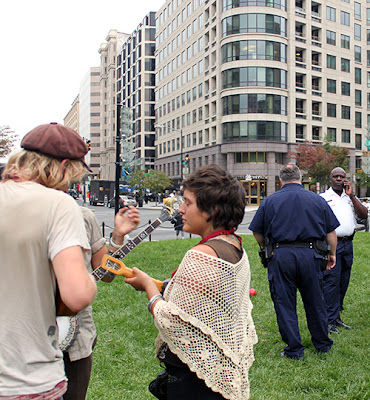I used to feel alone in the world. I felt cut off from the kind of human relationships that I wanted – a group of people who would love me for who I really was, and not simply because I conformed to their expectations. I yearned to be part of a community. I had all sorts of ideas about what this imaginary community should look like and how it would fulfill and complete my life.
Something remarkable about my early visions of community is that none of these fantasies required me to change at all. I wanted others to fulfill me as I was, not to transform my perceptions, actions and character. I could not see it at the time, but my ideas about community were largely an idol. I had turnedcommunity into a product that would fulfill me as I was, rather than shake me to the core.
Idols die hard, and I clung to this one for many years. Slowly, however, I started to see that my own attitudes, habits and ways of treating others were keeping me outside the circle of community. I began to understand that I was not going to find a magical solution out there unless I was willing to be changed in here.
It is no wonder that I clung to my ideas of the perfect community for so long. With my false images of community firmly in hand, I demanded that the world love me, even though I was doing very little to show love to the world. The truth was, I often hated others – hated them for not giving me what I wanted, for not loving me, for not seeing me for who I was. In the height of silliness, I blamed them for not loving me, when I hated them. How could I ever have expected others to return love for my hatred?
And yet, this is exactly what Jesus did for all of us. Though we hated him, spit on him, tortured and murdered him, he loved us with every fiber of his being. He was secure enough in his Father’s love that he could return good for evil, love for hate.
In this, we discover the secret to authentic community. Real community requires me to make myself vulnerable to others, even when I have no reason to expect to receive anything good in return. Genuine relationships are built on the foundation of the self-giving love that is a pure gift from God. We cannot produce it, we cannot sustain it – we can only allow this abundant life and power to flow through us and fill our lives and relationships.
Is this all sounding too mystical, too theoretical? In practical terms, true community demands that we make ourselves available to people that we do not always like. It means renouncing the right to shut down the conversation. These kinds of relationships are made possible because our trust is not primarily in other people, or even ourselves, but in the living presence of Jesus in our midst. In a mature community, we love one another because Christ loves through us.
Without the presence of Christ in the midst, community cannot endure, because our relationships are based on fulfilling the needs of each individual through transactions. When we try to live in relationship through our own strength, community ends up becoming a marketplace for unfulfilled desires. This marketplace-community breaks down quickly when some of its members have nothing to sell.
The Kingdom of God stands in sharp contrast to this brittle, transactional style of community. In the kingdoms of this world, we haggle and trade; but in the Kingdom of God, we share gifts. In merely human communities, we each seek our own fulfillment; but when we are gathered by Jesus, we become capable of laying down our lives for each other.
What challenges do we face in a world where most of our communities are based in the idea of exchange, commerce and transaction? What might it look like for us to live in the gift-based community of Christ? Where can we find the encouragement we need to start giving to others without thought of being paid back? How can we speak to the deep loneliness and anxiety of our neighbors, freely giving the love that we have received from God? What would it be like to create a loving environment where real transformation can begin to take place?



